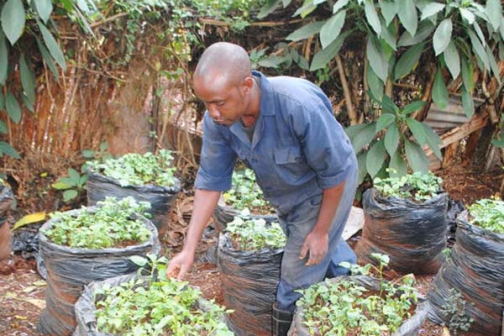×
The Standard e-Paper
Home To Bold Columnists

When Patrick Kairu was a boy, he wanted to be a pilot. His dream was to fly a plane or become a successful engineer.
Years later, Kairu has found himself driving a different kind of machinery – a handcart. He says he has no regret over the path he chose to follow; that of quitting formal employment to pursue farming.